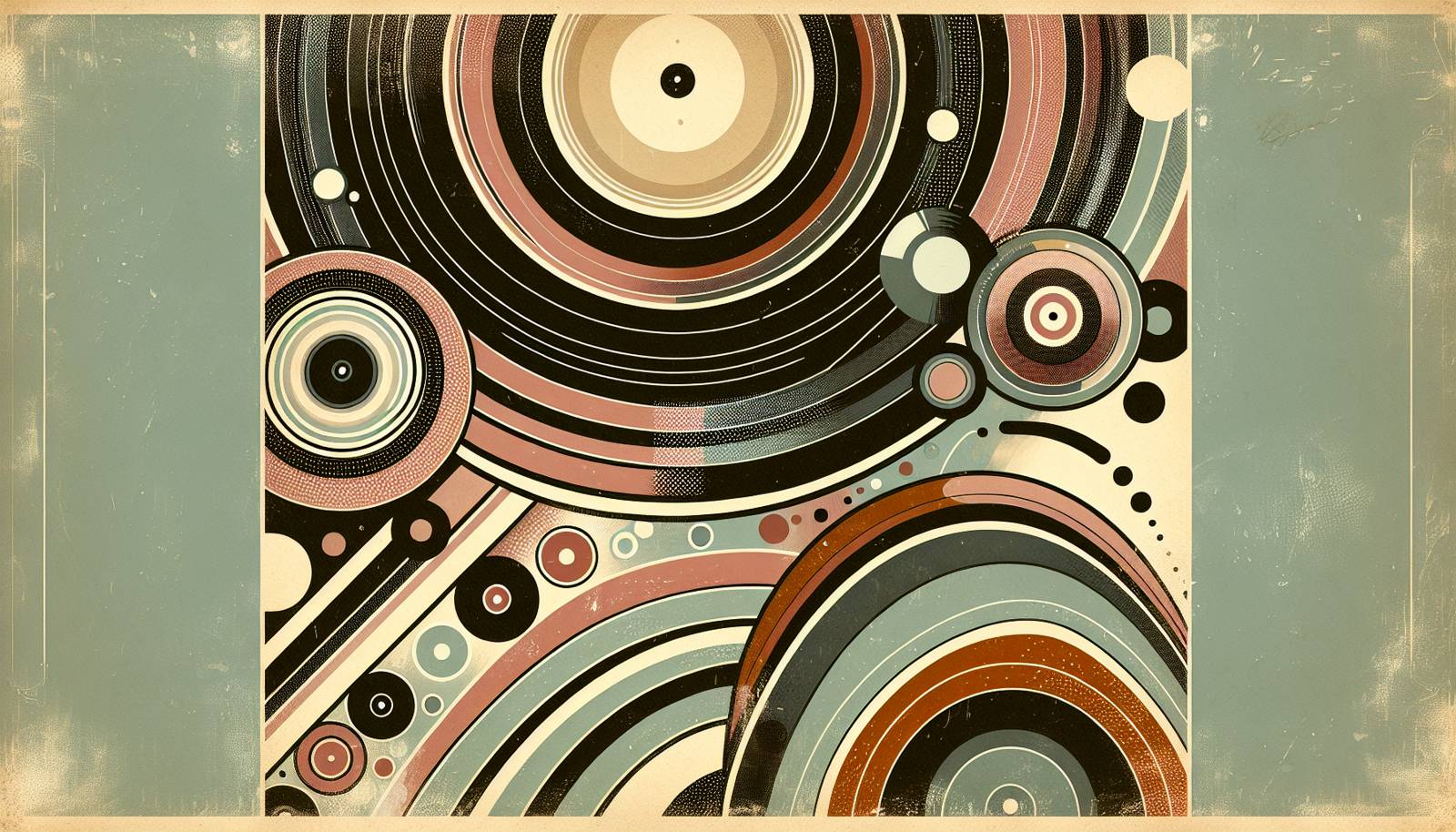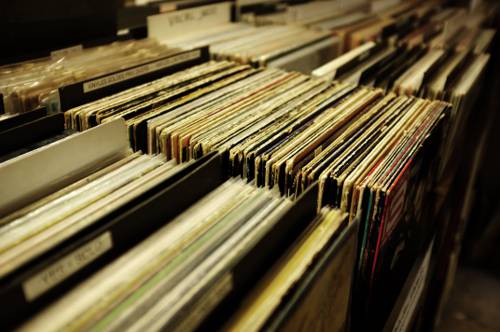
FAQ About The Cultural Revival of Vinyl Records

What is the cultural revival of vinyl records?
The cultural revival of vinyl records refers to the renewed interest and popularity of vinyl records in the digital age. Despite the convenience of digital music, many people are returning to vinyl for its nostalgic value, physical presence, and superior sound quality. This revival has seen an increase in vinyl sales, with many new artists releasing their music on vinyl alongside digital formats, as well as a resurgence in the popularity of record stores and turntables.

Why are vinyl records becoming popular again?
Vinyl records are becoming popular again for several reasons. Firstly, they offer a tactile and physical experience that digital music does not provide. Secondly, many music enthusiasts argue that vinyl records offer superior sound quality due to their analog nature. Additionally, the art included with vinyl records, such as large album covers and inserts, enhances their appeal. Collecting vinyl also provides a sense of nostalgia and serves as a hobby for many individuals.

What impact has the resurgence of vinyl records had on music listening cultures?
The resurgence of vinyl records has significantly impacted music listening cultures by re-introducing physicality and ritual into an otherwise digital experience. Collectors and audiophiles often spend time flipping records, examining cover art, and caring for their vinyl collections. This has led to a resurgence in communal listening and discussions centered around the appreciation of music in its physical form. Furthermore, it supports local record stores and creates communities of enthusiasts who share a passion for music on vinyl.

How do vinyl records compare to digital music in terms of sound quality?
Vinyl records are often praised for their warm, rich sound that some listeners prefer over digital formats. This is because vinyl is an analog format, capturing the full audio waveform, while digital files are compressed and can lose some audio information. However, sound quality can vary greatly depending on factors such as the condition of the vinyl, the quality of the turntable, and the playback system. It is also a matter of personal preference, as some listeners prefer the convenience and clarity of digital music.

What makes vinyl records a collector's item?
Vinyl records are considered collector's items due to their historical value, limited pressings, and unique artwork. Older records or those released in limited quantities can become rare and sought after, sometimes increasing in value over time. The large format of vinyl also allows for elaborate and creative album covers and liner notes, which can be highly desirable to collectors. Additionally, collecting vinyl offers a tangible connection to music history and the artists who created it.

What are some common misconceptions about vinyl records?
One common misconception is that all vinyl records have superior sound quality compared to digital formats. While many audiophiles prefer the sound of vinyl, this can depend on the pressing quality and the playback equipment. Another misconception is that vinyl is outdated or only for older music; in fact, many modern artists release on vinyl. Lastly, some believe that vinyl is inconvenient, but for many, the process of playing a vinyl record is part of its charm.

How has the resurgence of vinyl impacted the music industry economically?
The resurgence of vinyl has had a positive economic impact on the music industry. Sales of vinyl records have steadily increased, contributing to greater revenue for artists, record labels, and record stores. This resurgence has also sparked growth in industries related to vinyl, such as turntable manufacturers and accessories for records. Additionally, special vinyl releases on Record Store Day encourage consumers to make purchases and discover new music, further driving sales.

Are there differences in the content offered on vinyl records compared to digital releases?
Sometimes, vinyl releases may offer different content than digital versions. This can include bonus tracks, exclusive artwork, or special editions with extras like colored discs or expanded liner notes. These additions enhance the collector's appeal of vinyl records. Furthermore, the listening experience on vinyl can differ due to its structure, like longer gaps between tracks, potentially affecting how albums are perceived as a cohesive work.

What role do independent record stores play in the revival of vinyl records?
Independent record stores play a crucial role in the revival of vinyl records. They serve as community hubs for music enthusiasts, offering a curated selection of records and an opportunity for personal interaction that online shopping can't match. These stores often host events like Record Store Day, live performances, and listening parties, fostering a sense of community among vinyl collectors. Their knowledgeable staff can guide new collectors and provide recommendations based on individual tastes.

How has technology influenced the resurgence of vinyl records?
Technology has influenced the resurgence of vinyl records by making it easier for artists to produce and distribute vinyl. The advent of modern vinyl pressing technology allows for quicker turnaround times and higher quality pressings. Online platforms enable independent artists to fund and distribute their vinyl releases directly to fans worldwide. Digital media like social networks have also helped to create communities around vinyl collecting, making the culture more accessible and widespread.

Is the vinyl revival a global phenomenon?
Yes, the vinyl revival is a global phenomenon. While particularly strong in regions like North America and Europe, where cultural and historical ties to vinyl are more pronounced, the trend is also evident in countries around the world. Global Record Store Day celebrations and the universal appeal of tangible music experiences have helped spread vinyl's popularity across diverse music markets, reaffirming its status as a timeless medium for music lovers everywhere.

What is Record Store Day and how does it relate to the vinyl revival?
Record Store Day is an annual event celebrating independent record stores worldwide. It plays a significant role in the vinyl revival by highlighting special vinyl releases, often exclusive to the event, which are eagerly sought after by collectors. This day brings attention to the importance of independent music retailers and fosters a community spirit around the vinyl record experience, encouraging both seasoned collectors and new enthusiasts to participate in the vinyl culture.

How do younger generations perceive the vinyl record revival?
Younger generations often perceive the vinyl record revival as an opportunity to connect with music in a more meaningful way. Many millennials and Gen Z appreciate vinyl for its tangible nature, warm sound, and the ritualistic experience of playing records. This demographic frequently finds value in the uniqueness and aesthetic quality of vinyl collections, which can serve as a counterbalance to the fleeting nature of digital playlists and streaming services.

Has the vinyl revival affected the production of new turntables and audio equipment?
The vinyl revival has indeed influenced the production of new turntables and audio equipment. Manufacturers have responded to the growing demand by producing modern turntables with updated technology and features, like USB connectivity for digitizing records. There’s a wide range of equipment available, from affordable options for beginners to high-end audiophile setups. The renewed interest in vinyl has fostered innovation and variety in audio equipment markets, ensuring high-quality playback.

Can vinyl records deteriorate over time, and how can they be preserved?
Yes, vinyl records can deteriorate over time if not properly cared for. They are susceptible to scratches, warping, and wearing out. To preserve them, it's important to handle records by their edges, store them vertically in a cool, dry place, and keep them away from direct sunlight. Regular cleaning with appropriate vinyl cleaning tools can also help maintain their condition. Additionally, using quality inner and outer sleeves can protect records from dust and damage.

What role does nostalgia play in the vinyl revival?
Nostalgia plays a significant role in the vinyl revival. For many, vinyl records evoke memories of a time when music was a more intentional and immersive experience. Older listeners often associate vinyl with their personal music history, while younger listeners are drawn to the authenticity and heritage of the medium. This nostalgic appreciation helps drive the desire to create or expand personal vinyl collections, as it provides a tangible link to the past.

What are some challenges facing the vinyl record industry today?
The vinyl record industry faces several challenges despite its revival, such as limited pressing capacity due to the closure of many pressing plants in previous decades. This can lead to delays in production and increased costs. Additionally, sourcing materials for vinyl records, like the PVC used in disks, can be challenging due to environmental and economic factors. Furthermore, competing with the convenience of digital music continues to be a hurdle that the industry must navigate thoughtfully.

Are modern artists contributing to the vinyl record revival?
Yes, modern artists are significantly contributing to the vinyl record revival. Many contemporary musicians are releasing their albums on vinyl, recognizing the format as a valuable way to connect with fans and offer something tangible and collectible. These releases often include unique features such as exclusive tracks or artwork, enhancing their desirability among fans. By embracing vinyl, artists help to sustain the medium and introduce it to new audiences.

What environmental considerations are associated with producing vinyl records?
The production of vinyl records involves environmental considerations, particularly regarding the use of PVC, a plastic material derived from petrochemicals. The manufacturing process can result in emissions and waste. However, some companies are exploring more sustainable practices, such as using recycled materials or developing eco-friendly packaging. While the industry is faced with balancing demand with environmental responsibility, awareness and improvements are being made to reduce the environmental impact of vinyl production.

How does owning a vinyl record collection differ from streaming music in terms of user experience?
Owning a vinyl record collection offers a distinct user experience compared to streaming music. Vinyl provides a tactile interaction and a sense of ownership absent from digital formats. Collectors can physically browse through their collection, appreciate the large album artwork, and enjoy the act of playing a record, which often involves a ritualistic element. In contrast, streaming provides convenience, instant access, and portability but lacks the personal and immersive qualities that come with vinyl collecting.
